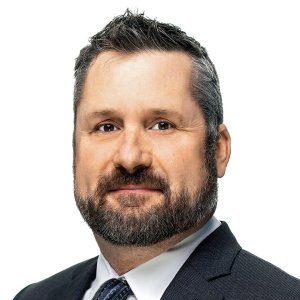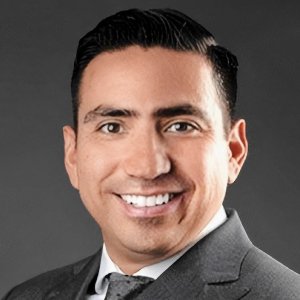Mining’s Strongest Allies Are Mexican Communities

STORY INLINE POST
Q: What are the most common social conflicts mining companies face in Mexico and how does CTA help its clients address them?
A: Most social conflicts are related to environmental issues. In some cases, members of a community mistakenly believe that mining companies pose a threat to their water supply, as well as to other natural resources. While this is a common misconception, the real danger occurs when the damages to the environment are real, turning a social conflict into an environmental issue.
We solve problems by understanding the problem and to thoroughly do that, we need data. For instance, we need to ask ourselves, how much water does a mine extract? How much of the water is extracted by the community? Do these extractions interfere with one another? If there is interference, we then present a solution. In other cases for example, we would need to collect a mine’s atmospheric emissions data. We then study the amount of dust particles emitted and whether or not that poses a threat to the community. We help our clients determine the causes behind their emissions and with all that information in hand, we find a solution where the community is left unaffected or in better conditions than before.
Q: How would you compare Mexico to other countries in regard to social licenses?
A: For a long time, Mexico was a country where getting a license was straightforward, with little to no complications. Mexico was known to be a friendly country for mining investors, both the government and the communities alike. Mexican communities are familiar with mining, making social licenses easier to obtain. This made Mexico very attractive to Canadian, American and Australian mining companies. Recently, however, it would appear that getting a license is becoming more complicated. Not so much social licenses but environmental ones, where the government has a say. I believe this has to do with the policies adopted by the federal government.
Q: What should mining companies do to change the government’s stance?
A: In the López Obrador administration, people in the higher levels of government do not understand the many benefits the mining industry can provide. In Mexico, there is no other industry that can provide the jobs and benefits in rural areas that are provided by the mining sector. There is no other industry that could replace 2,000 jobs in a small remote town in Zacatecas. These are some of the benefits the government does not seem to understand. It is possible that the upper levels of government are ill-advised. In regard to what mining companies should do, we believe that through their advisers they must find a way of establishing closer ties with the federal government and engage in a fruitful discussion regarding the industry’s benefits.
Q: What can companies do protect themselves from the government’s recent policies?
A: We believe that the best and only way mining companies can protect themselves is by creating stronger relationships with their neighboring communities. In addition, companies should increase their investment in education and communication between the community and the companies themselves. It is important to mention that in most cases, there is a language barrier between the mine’s managers and the people in the community. There is not enough mining vocabulary shared between them to explain the benefits or problems of a mine. In an industry that relies so heavily on their communities, communication is key.
Q: How can mining companies remove the misconceptions that some communities have about their mining operations?
A: The social conflicts we have observed many times relate to business-related issues. We have seen transport contractors creating roadblocks because they feel affected by certain management decisions. The reason we don’t see many social misconceptions is because companies tend to hire locals. Local hiring is a major subject and a key factor in mining. I would recommend mining companies to create a strategy around it. And we should ask ourselves how to handle local hiring. How does one choose the providers? How do I prevent my local hiring choices from becoming a problem? Did I exclude someone that I should not have excluded? It is important to develop a proper strategy around this relevant concept to prevent it from becoming a social issue.
Q: How are mining companies in Mexico incorporating ESG practices?
A: Canadian and American gold companies are on top of their game when it comes to their environmental, social and governmental rating. Mexican companies on the other hand, have fallen behind. The main reason why Canadian and American companies have performed better is because they are public companies that trade in international stock markets. In a world that is so dynamic, such as the stock exchange world, investors are very attentive to where they place their money. Therefore, to attract major investments, public mining companies are forced to put out reports of their performance in each sector. Through this transparency, companies attract investors and increase their market value. To publish a favorable report, they increase their budgets in each of the three sectors. Some Mexican companies have started going public and have begun trading outside the Mexican Stock Exchange and this forces them to improve their environmental, social and governmental rating.
Q: How important is the incorporation of ESG practices in the mining sector and how does CTA promote them?
A: It is essential for mining companies to incorporate and implement solid ESG practices, as this has been proved to be linked to the increased company value, investor confidence and it plays an important role in their reputational image. The factors considered in the environmental, social and governmental sectors are related to emissions, effluents and waste, water use, biodiversity, energy use and GHG Emissions, community relations, health and safety, under others. We work closely with our clients to determine the objectives of each of these points. We also assist our clients in the implementation of those objectives through a carefully planned strategy.
Consultoría y Tecnología Ambiental (CTA) is an environmental consulting group that has been providing long-term environmental solutions tailored to the needs of mining clients for 21 years. CTA has offices in Canada, Mexico, Guatemala and Chile, and experience in more than 17 countries.

 By Paloma Duran | Journalist and Industry Analyst -
Fri, 03/19/2021 - 12:48
By Paloma Duran | Journalist and Industry Analyst -
Fri, 03/19/2021 - 12:48
















